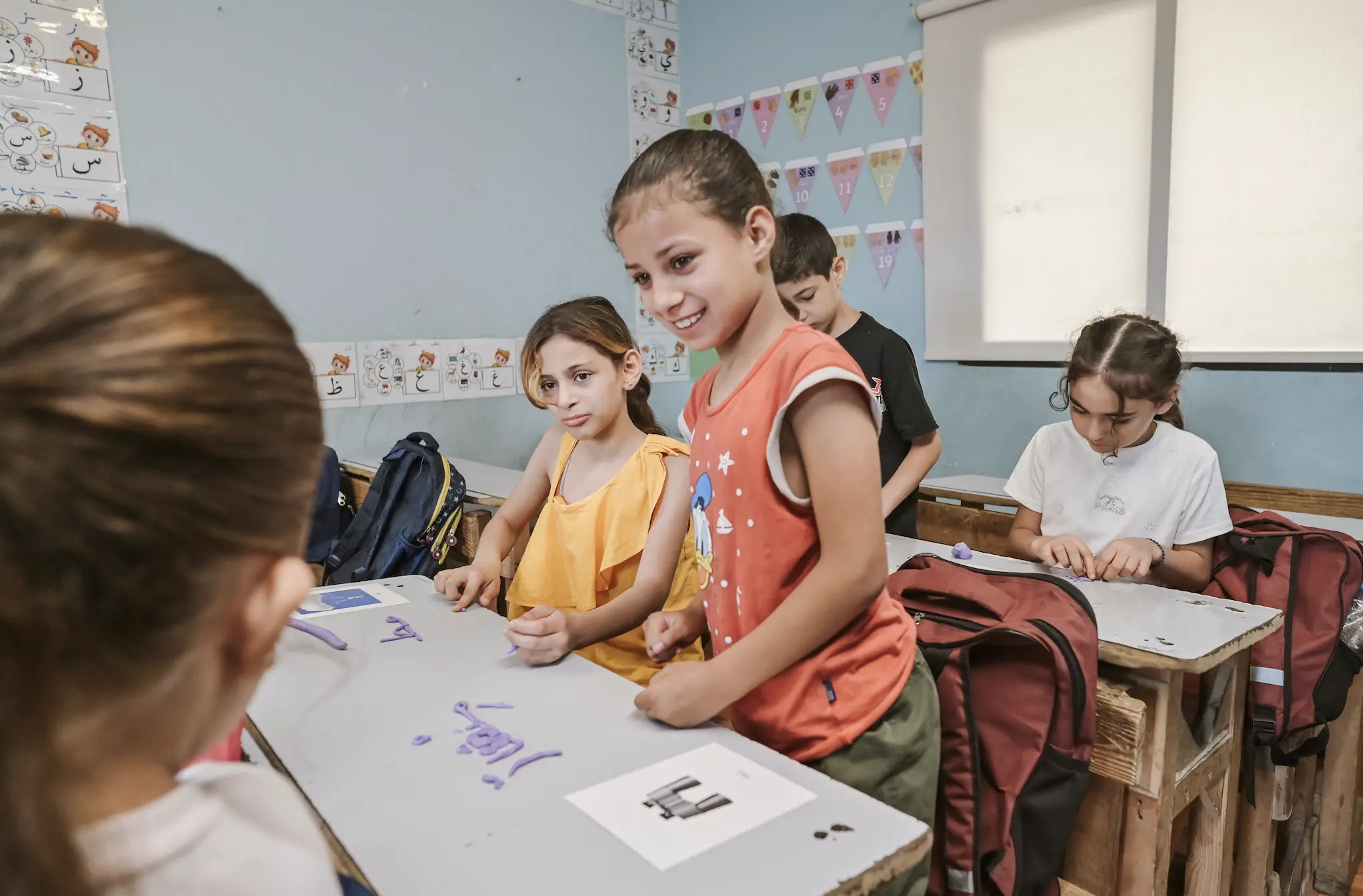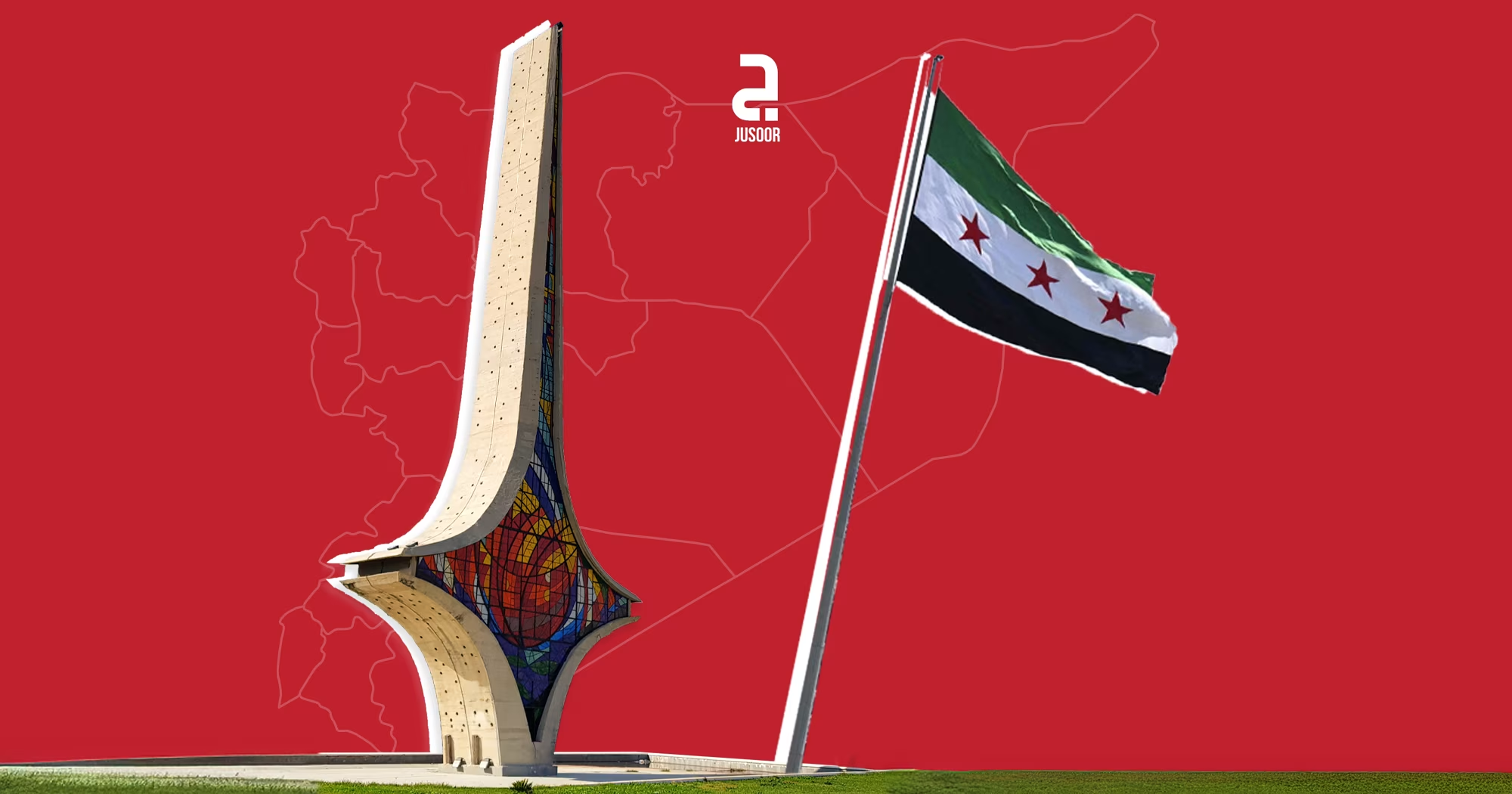Recent threats of losing their homes and being detained or deported have triggered many Syrian children and families finding refuge in Lebanon to be in chronic fear. In response, Jusoor mobilized to support our community with comfort, coping strategies, and affirming our commitment to all children’s rights to education and safety.
The Situation in Lebanon
The ongoing economic collapse in Lebanon has had multiple debilitating consequences for its social fabric and cohesion. In the last few months, an increasing climate of racism and scapegoating of Syrian refugees reached a fever pitch, leading to a series of raids and deportations of Syrians. While such rhetoric is not representative of all Lebanese citizens’ views or beliefs, it comes as the latest in an escalation of anti-Syrian sentiment and exploitation over the years, reflecting the intensity of hardship for those who have endured political tensions, financial duress, and the COVID-19 pandemic. The pileup of hardships has been felt most intensely by the most marginalized, whose living conditions and mental well-being are significantly affected.
For children in particular, such high levels of threat and deprivation can have lasting consequences for their wellbeing – including their confidence, self-esteem, and dignity, and can manifest in various behaviors, such as nightmares, clinginess, and withdrawal from social activities. As Suha, Jusoor’s Head of Refugee Education, explained:
“The children were so unusually quiet in our classrooms these few months – they were so terrified that they would go home to find that their father or their brother had been detained or deported.”
Observing the community’s wellbeing deteriorating, we mobilized to extend solidarity and comfort for our students and their families.
Support for Children
To address the emotional needs of these children, Jusoor’s psychosocial counselor, Rania Al Boubou, offered one-on-one psychosocial support sessions for children who were struggling to process their feelings and fears. Depending on their individual situations, sessions covered a range of topics, including:
- Identifying and expressing the fear they feel: Many children expressed fear of separation from their parents or the possibility of an army officer harming their parents. Learning to understand and verbalize their fears helped them to understand that these were normal responses to abnormal circumstances.
- Validating their fears: Acknowledging that it is natural for them to feel fear and that others may experience similar emotions.
- Careful listening: Actively listening to the children's concerns and reassuring them that their feelings are understood.
- Coping techniques: Providing children with strategies to overcome their fear, such as thinking of a safe place when they feel afraid, practicing simple breathing techniques, or drawing to express their thoughts safely.
- Seeking comfort: Encouraging children to stay close to someone with whom they feel safe when they are anxious.
- Communication with parents: Advising children how to talk to their parents about their concerns without feeling guilty for overburdening them.
Children’s sessions with our counselor also involved play, art, and movement, enabling them to express themselves and regain a sense of normalcy.
Support for Parents
Jusoor also recognizes the intensity of fear that parents carry as refugees themselves. Many of them were adolescents during the early years of the conflict in Syria; thus, they carry the responsibility of caring for their children in circumstances that are triggering their own traumatic memories.
As one of the parents expressed to Rania:
“Since the raids started, my child has not been able to sleep properly at night; he is getting nightmares of the raids and speaking in his sleep about how the army will take us.”
While most children were born in Lebanon and did not directly experience displacement from Syria, their fear is mostly a reflection of their parents’ fear and worry.
Parents play a crucial role in nurturing and protecting their children's emotional well-being, thus, receiving support in such times of heightened stress is critical. Thus Jusoor invited parents to meet with our counselor to share their concerns, and hear from her advice on managing their own stress and creating a safe and reassuring environment for their children, such as:
- Breathing exercises to restore calm and reduce panic
- Sharing their feelings with adults whom they trust
- Avoiding the discussion of distressing news in front of children.
- Controlling emotions like excessive crying or screaming in case of an accident.
- Reinforcing the importance of staying together as a family.
- Allowing children to sleep near their parents if it makes them feel safe.
- Refraining from criticizing or blaming children for their fears.
- Maintaining normalcy in the home, including a consistent bedtime routine.
- Actively listening to children when they express their fears.
In addition to these strategies, the sessions also addressed the parents' own fears. They provided them with practical tips on following protection measures in Lebanon, including staying at home if possible and leaning on our teaching team to help bring them groceries when needed.
While the contextual circumstances may not be in our control, Jusoor firmly believes in the power of both individuals and groups to provide comfort and connection and build stronger, more protective communities for refugee children, even in times of great duress.
.webp)


.webp)